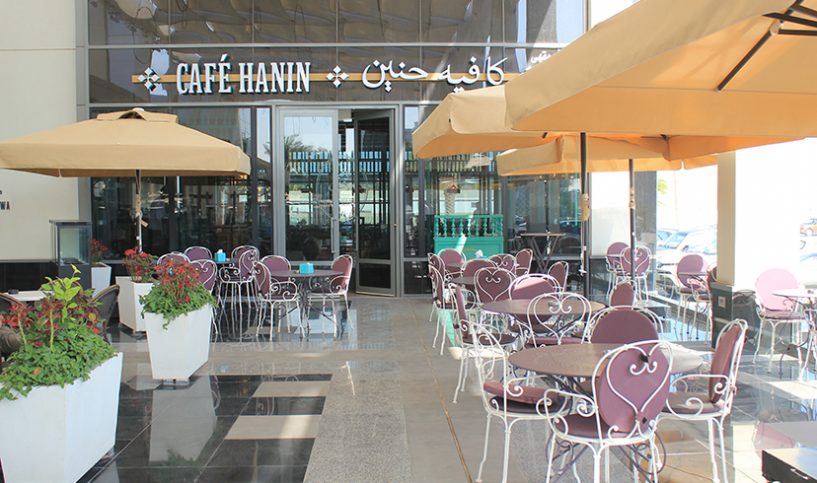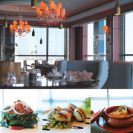Levantine restaurants are well known for their delicious cuisine, but it’s a trend that most of them tend to stay in the confines of where it is safe. Offering tried and tested favorites like mashawi, hummus, salads, and maybe sometimes a cheeky plate of something a little different, like shish barak. But for a culture that has some of the most delicious, renowned home-cooked food in the region, its exclusivity keeps others from enjoying it. Café Hanin, however, exists to change the game.
Courtesy of the good people who brought to us the Majnoon Qahwa, Café Hanin poses as the matronly counterpart to the hip café bistro. Though reminiscent in décor, (and close in proximity, acting as MQ’s neighboring joint in The Spot), the menus are vastly different, with Café Hanin providing sustenance that can only be found in your grandmother’s kitchen – on top of the cult classics, like grills and whatnot.
Described as a restaurant that tells the history of Middle Eastern heritage by using food, drink and hospitality, Café Hanin emulates the best parts of our culture to prep an unforgettable experience for all diners and guests to enjoy. This two-story restaurant is decorated in a sense that memories of your grandmother’s brightly colored, kitschy mountain home will come flooding back.
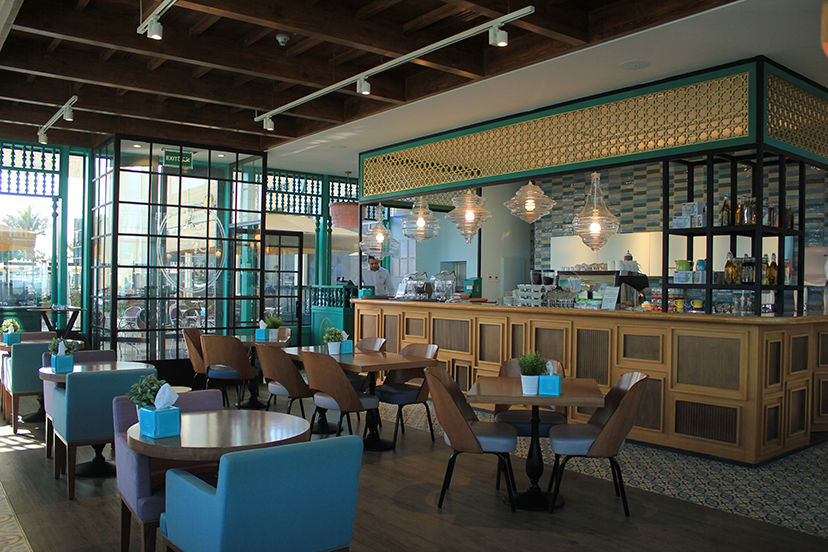
Cafe Hanin. Source: bazaar
Pastel colored cushions atop wooden framed couches and tables adorn the place, with complimenting hues contrasting on the walls. Modern geometrical lighting and tatreez embroidery accents on the menu give the place a contemporary feel, but the contents of the menu are definitely not contemporary.
I was surprised to see Palestinian soul food dishes like Mansaf and Maqluba on the menu, since such are traditionally sharable feasts you’d indulge in during Friday lunch with 70 of your closest family members. Famous Syrian dishes like an array of fatta ranging from hummus, eggplant and chicken were also on there, and was that Djej Mahshi (Stuffed Chicken), I spotted?
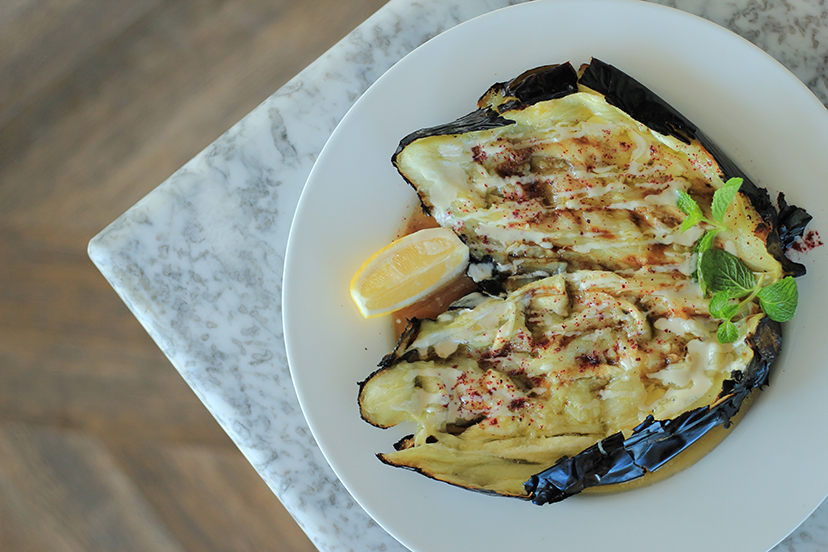
Cafe Hanin. Source: bazaar
The menu also has loads of options that are less obscure to a restaurant: eclectic styles of breakfast eggs, manakeesh flatbreads, hot and cold appetizers such as sujok, chicken and meat sajjiyeh, flame roasted open eggplant, fattouch and tabbouleh, and of course, the hummus and muttabal dips served with freshly made pitta bread.
Though the menu’s contents overall read mouthwatering, I decided during my visit not to overdo it. In fact, I was enthralled by the idea of experiencing some of my home cooked favorites outside of my mother’s house. However, though bold, I was intrigued, to say the least, if Chef Khalil’s renditions would rival what I was accustomed to. I was about to find out, as each dish made its way from the kitchen.
We first started out with some traditional appetite-whetting items from the menu. Fresh feeds like tabbouleh and fattoush, lovely and colorful in presentation, and an exquisitely creamy hummus and muttabal made their way to the table. As a huge eggplant fan, I was all over the muttabal – which is quickly replacing hummus’ place in my heart – but, the star of the show, in my opinion, was the roasted eggplant. Torn down in the middle and butterflied, this delicious eggplant was oozing with its natural juices, a light dose of olive oil, fragrant garlic, and lemon. But the loveliest part about the eggplant? The unbeatable taste of charcoal. Pro tip: eat it with bread. Trust me.
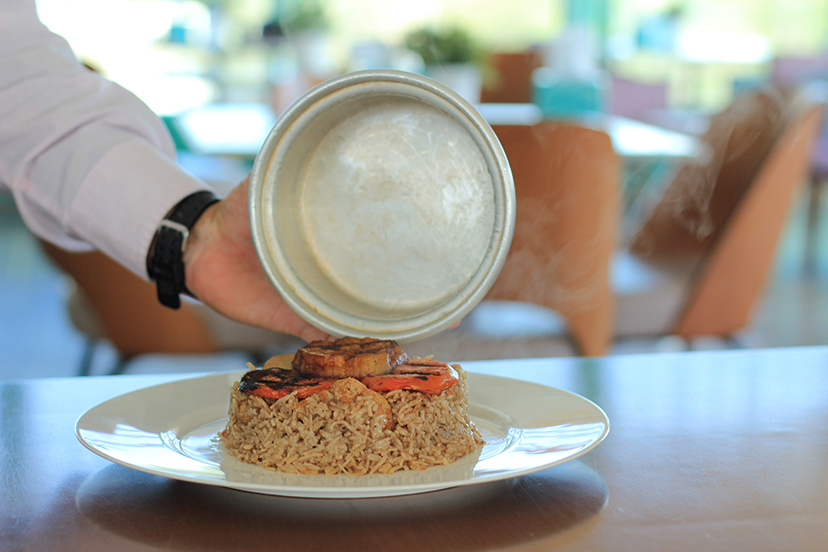
Cafe Hanin. Source: bazaar
In a moment that seemed like a great reveal, the pieces du resistance came out. A personal serving of maqloubeh, imitating its ancestor, tucked beneath a little pot. Maqloubeh, a dish that literally means “upside down”, is usually made with spiced rice, eggplant, cauliflower, potato, beef tomato chunked slices and chicken or lamb (never both), then, is slow cooked for a long, long time. When the chef is finally satisfied, the dish is flipped over on a platter and a pot’s release sends all the flavors spilling out, ready to be devoured by the masses.
Café Hanin’s rendition appeared more personalized, and had a miniature silver chrome pot securing the flavor and steam of the dish. Once the waiter released its contents, it all came spilling out accompanied with steam and flavor, as promised – and yes, it tasted just like home.
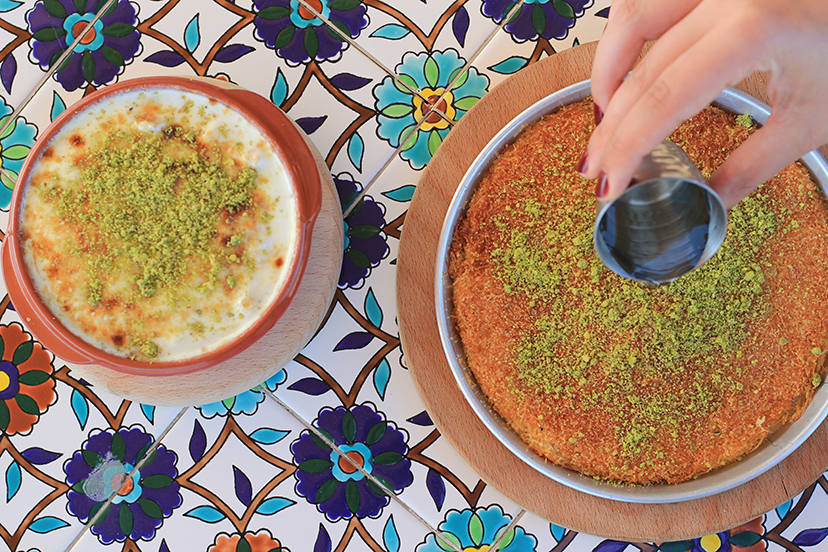
Cafe Hanin. Source: bazaar
Mansaf was the most surprising dish on the menu, as its girth is traditionally reserved for large (and somewhat invasive) family lunches and reunions. However, Chef managed to recreate it in a chic, cosmopolitan manner, making it enough for 1-2 people to thoroughly enjoy. A succulent portion of lamb’s leg rests upon a bed of golden rice, and is served with the warm, fatty yogurt mix that’s meant to be poured over the meat, rice and its garnishing roasted pine nuts. As someone who has never been particularly ecstatic about Mansaf, this was good. Maybe because of its more personalized portion? But one thing’s for sure, though Mansaf was a surprising menu addition, being Jordan’s national dish, it makes sense and is sentimentally appropriate that the Jordan-born franchise Café Hanin would master and serve it.
Dishes like Mansaf and Maqloubeh are no joke, and don’t leave a lot of room for something sweet. However, when I learned that Café Hanin’s short and sweet dessert offerings included traditional Nablus-style knafeh, my Palestinian heart erupted with excitement. It came out crunchy, made with real Nablusi cheese, and had a gorgeously green pistachio garnish atop. Served with the traditional syrupy sweet atir, it was definitely the perfect way to end such a modern take on a traditional meal. Just don’t forget to enjoy it with coffee!
Especially in one of the vast outdoor seating areas, because between their ground floor terrace sweeping the sunlight with ambiance, and the cozy upstairs balcony area, outside seating is always a lovely option – whether you’re enjoying a nargileh along with your home cooked food or not.
Café Hanin is located in The Spot, opposite Messilah Water Village. Follow @cafe_hanin_kwt on Instagram for more information and the latest updates, or please call 2205 5494. Photography by Muneera Alkhulaifi, @I9ora on Instagram.

